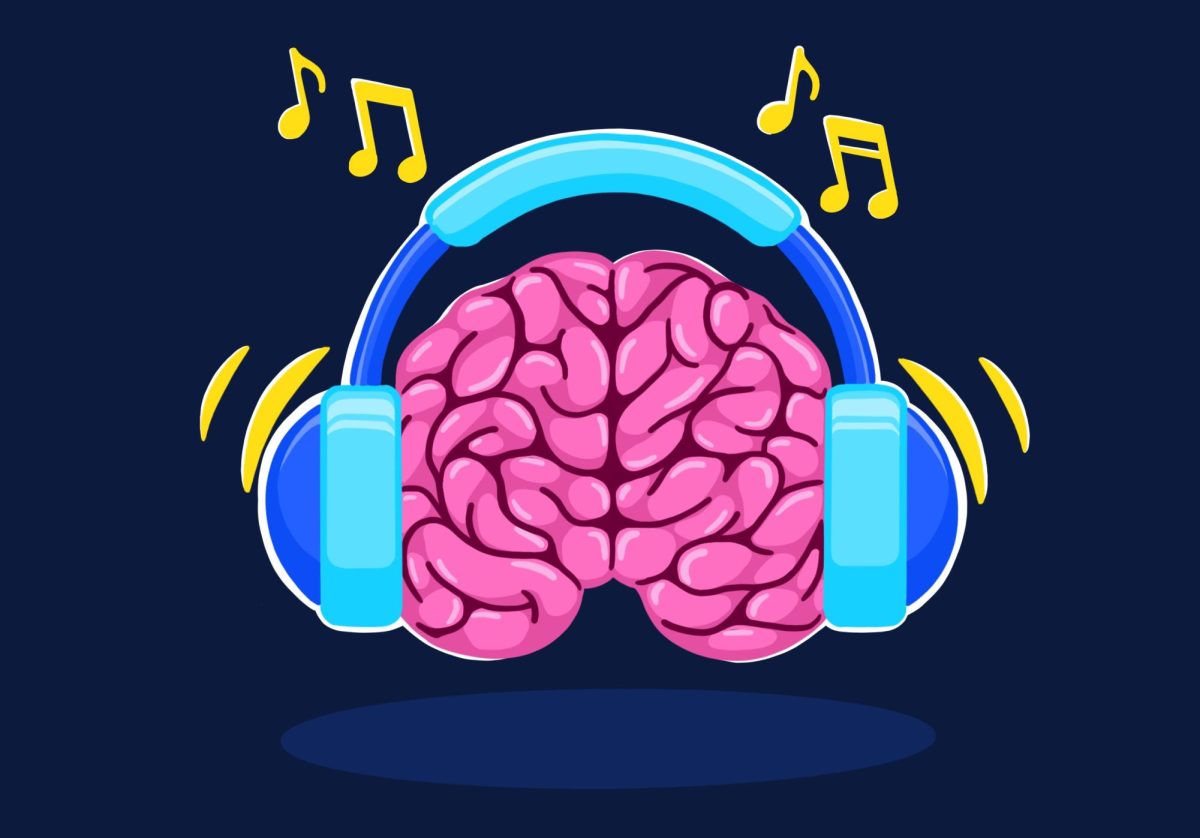Music is a fascinating mirror of both society and our minds.
Few other forms of media allow for such deep exploration of human nature in a format easily consumable by the masses.
Music reveals not only what aesthetics are popular at any given time, but also what themes and topics are relevant to the lived experiences of its audience. Music can show us what we care about at the deepest level.
Reflecting the experiences of young people today, neurodivergence and mental health are increasingly prevalent on the music scene.
I recently attended a concert by Will Wood, an artist who directly confronts themes of mental health and neurodivergence in songs like “Love, Me Normally” and “Marsha, Thankk You for the Dialectics, but I Need You to Leave.”
This being my first Will Wood concert, I was shocked when I saw the crowd waiting outside the venue.
Not only was the crowd much bigger than I expected for an artist with such a niche style, but the vast majority of the audience appeared to be under the age of 30. It was like a magnet pulled members of Generation Z to the venue like moths to a musical flame.
The musical artists talking about mental health and neurodivergence are not all members of Gen Z, but listeners from our generation made the market for music addressing these themes grow exponentially.
This growth is evident in the popularity of songs like Doechii’s “Anxiety,” which saw frequent use as a TikTok audio and received 35 million views on YouTube in two months.
Aster Gallus, an occupational therapist who frequently works with neurodivergent youth, said members of Gen Z are typically far more self-aware about signs of neurodivergence and are more proactive about their own mental health than older generations.
“A lot of the proactivity is another form of control,” Gallus said. “Each generation has its unique take on control.”
Jenzi Silverman, an instructor with the University of Minnesota’s Earl E. Bakken Center for Spirituality and Healing who teaches classes on music and wellness, said music depicting themes of neurodivergence and mental health plays an important role in combating historical stigma around these issues.
“I am so happy that so many musicians are doing this just in recent years,” Silverman said. “There has long been real stigma against people who have mental health issues or people who are neurodivergent.”
Note by note, the music scene is becoming more sympathetic to those struggling with neurodivergence and mental health issues. Rap music, for example, saw a notable increase in the use of mental health metaphors and mentions of depression and suicide from 1998 to 2018.
“Another much more recent example is Ariana Grande’s song ‘Breathin,’ which she wrote and recorded when she was having struggles with panic attacks herself,” Silverman said.
Gallus said music referencing mental well-being provides an opportunity for many to explore themselves in a world where a variety of stressors make it increasingly difficult to mask their struggles.
“There are very honest takes on what it’s actually like to experience the mental health effects of being in the society that we’re in,” Gallus said. “I think music’s a really interesting expression of that.”
Part of the benefit of music that depicts mental health struggles is its ability to make listeners feel like the artist truly understands them and wrote the song for their individual situations, according to Silverman.
“If you’re in a bad headspace and you’re listening to music that matches that, you feel less alone,” Silverman said. “You feel like the songwriters and performers have understood the way that you’re feeling.”
For a group as in-tune with their mental health as Gen Z is, music provides a way to digest how our minds work without being overwhelmed by existing stigma or shame, making it a useful form of validation.
Silverman said she appreciates how Generation Z and Generation Alpha are willing to approach mental health and neurodivergence in far healthier ways than older generations.
“I’d encourage people to reflect on and explore how music helps them feel better when they might be in a bad headspace or just feel better about themselves and their relationship to the rest of the world,” Silverman said.
Music that references mental health and neurodivergence not only spreads awareness and allows listeners to work through their own problems, but also improves how we address these issues in our society.
A 2020 study of college students found that pop music that discussed various themes related to mental health improved mental health empathy, reduced stigma and increased participants’ willingness to help others improve their mental well-being.
In a chaotic and unforgiving world, music provides the opportunity to explore new themes, concepts and feelings in a healthy and productive way.
It’s important to recognize that mental illness and neurodivergence are serious conditions that should be discussed carefully and respectfully, not used for a joke at someone’s expense. However, not addressing these subjects keeps us from having conversations that we need to have as a society.
When made with good intentions, music that includes themes of mental health and neurodivergence goes beyond this exploration to allow for deep introspection and self-acceptance, especially among younger groups that are already more aware of their mental state.
As our awareness of our minds increases, this new musical market will only continue to grow, giving more and more people the chance for self-reflection.











